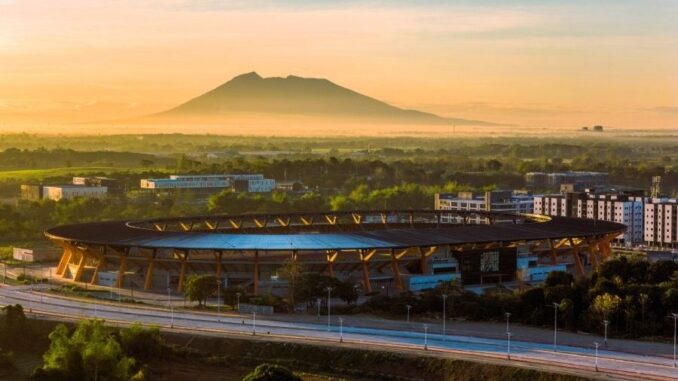
CLARK FREEPORT, Philippines — The Bases Conversion and Development Authority (BCDA) announced plans to use waste-to-energy (WTE) technology as a renewable energy source in the Clark Freeport and Special Economic Zone in line with avowed goals to foster “smart and sustainable development.”
BCDA said on Wednesday, January 8, that it is studying a proposed waste-to-energy facility in the Tarlac side of the economic zone “to boost power supply and serve the requirements of locators and investors in Clark.”
The BCDA said its WTE study will include site selection, as well as technical, environmental, social, legal, financial, and economic analysis for the design, construction, operation and maintenance of the facility.
Once the study is completed, the project, intended for public-private partnership, will be opened for public bidding, the BCDA added.
The state-owned and controlled corporation made this announcement after identifying WTE as a sustainable alternative to landfills, and amid what it described as “a growing energy crisis and surging global waste generation.”
“The BCDA is committed to adopting smart and green innovations to push for the sustainable development of our properties,” BCDA President and Chief Executive Officer Joshua Bingcang said in its January 8 statement.
“Utilizing waste-to-energy technology, in particular, will modernize solid waste management and promote green energy, helping usher Clark’s transition towards a circular economy,” he added.
The BCDA cited a 2018 study by the World Bank’s 2018 that showed global annual waste generation jumping to 3.4 billion tons by 2050, and carbon dioxide-equivalent emissions from solid waste treatment and disposal, primarily driven by open dumps and landfills without gas collection systems, reaching 1.6 billion tons in 2016, and increasing to 2.6 billion tons by 2050.
“With waste-to-energy technology, the BCDA can do its part in reducing greenhouse gas emissions, while also addressing the energy requirements of our community,” Bingcang was further quoted as saying.
Waste-to-energy technologies supposedly convert non-recyclable waste into usable energy, such as heat, electricity, or fuel, although environmentalists point out that the most common WTE technology is still incineration, which involves burning waste at high temperatures to generate steam.
At least 13 WTE projects have been approved in the country, including two facilities for refuse-derived fuel (RDF) generation, each with installed capacity of at least 300 metric tons per day.
The plans for an alternative waste management technology in Clark followed declaration by BCDA late last year that the authority to operate (ATO) for the 100-hectare Kalangitan sanitary landfill in Capas, Tarlac has expired on October 5, 2024 and cannot be renewed or extended.
BCDA said its affiliate Clark Development Corporation (CDC) had since told landfill operator Metro Clark Waste Management Corp. (MCWMC) to cease operations and peacefully vacate the facility.
This after The BCDA and the CDC were granted a Temporary Restraining Order by the Court of Appeals, in tCA-GR SP Case No. 186856, enjoining the Regional Trial Court of Capas, Tarlac from implementing its Writ of Preliminary Injunction which then prohibited BCDA and CDC from directly or indirectly removing MCWMC from the Kalangitan landfill site.
“Any attempt (for the Kalangitan landfill) to continue its operations would be against the law,” BCDA added in a statement published on its website last December 24.
The BCDA said the proposed WTE project in Clark is in line with the Marcos administration’s thrust to boost solid waste management initiatives and also complement the government’s Kalinisan sa Bagong Pilipinas Program, which calls for investment in solid waste management and ecological projects.


Be the first to comment